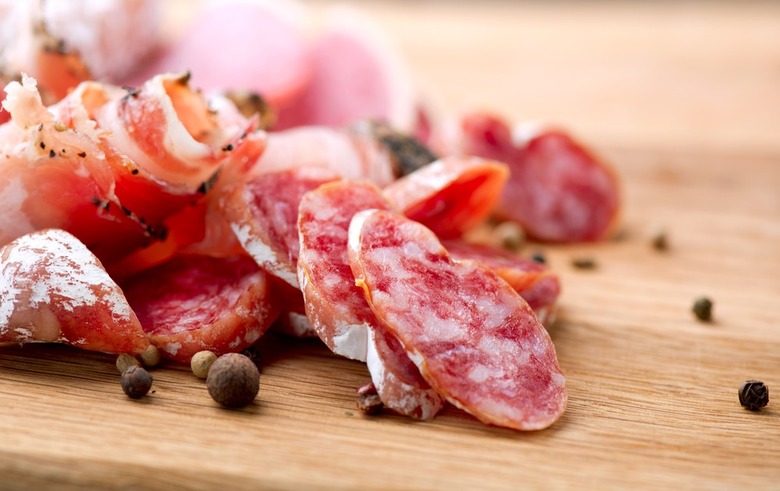Study: More Salt Makes Us Eat More Fatty Foods, Even AFTER We're Full
The more salt is used in cooking, the more susceptible we are to eating high-fat foods, even after we've become full.
In a study of 48 healthy adults (16 men and 32 women between the ages of 18 and 54), high salt content was linked to greater consumption of foods high in fat, even in those with high "fat taste sensitivity," or those with a low threshold for fatty foods.
During the study, subjects attended four lunchtime sessions where they were given macaroni with sauces that were low fat/low salt, low fat/high salt, high fat/low salt, or high fat/high salt. Participants were observed for their eating rate and intake, and asked to rate their hunger and fullness after each meal.
The high-salt dishes, regardless of fat content, were correlated with 11 percent greater intake of both food and energy. High-fat foods alone did not promote greater food intake, but increased participants' energy intake by 60 percent.
Moreover, fat taste sensitivity was only correlated with a lower intake of fatty foods when salt levels were also low. High salt levels increased consumption of fatty foods, even in those with a low threshold for fat, suggesting that salt "may override fat-mediated satiation."
Given that both salt and fat consumption should be carefully moderated as part of a healthy diet, these findings suggest that heavily salted foods lower our ability to exercise portion control, leading to overeating.
